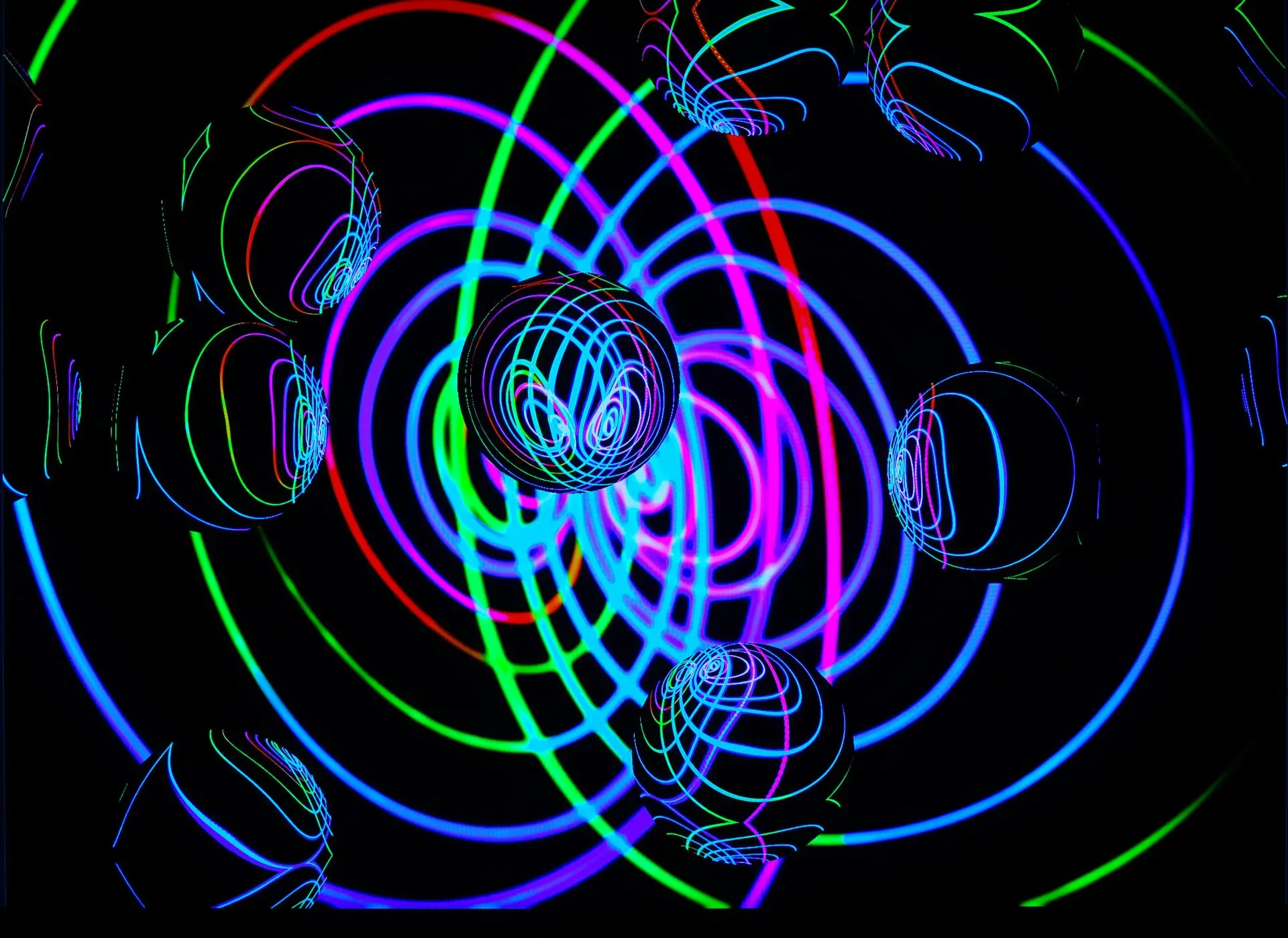Sacred Symbols in Hinduism: Meanings

Looking for more amazing products? Check out our online store and explore our collection here! Happy shopping!
Before diving in, please note: This post is for informational purposes only. If you’d like to know more about how we approach topics, feel free to check out our friendly Disclaimer Page.
Hey there, amazing readers! 
We’re committed to delivering quality posts, and your support (even just sticking around despite the ads) means everything to us. So, bear with us, and thanks for helping us keep the good vibes rolling. Now, on to the fun stuff!
TRANSLATE BUTTON AT THE END OF THE ARTICLE
Introduction to Sacred Symbols in Hinduism
Hinduism is a religion rich in symbolism, with various sacred symbols that hold deep meanings and significance.
These symbols are not just mere representations; they are believed to encapsulate profound spiritual truths and teachings.
From the omnipresent Om symbol to the intricate Sri Yantra, each symbol in Hinduism offers a window into the divine and serves as a means of connecting with the higher power.
Let’s delve into the meanings behind some of the most prominent sacred symbols in Hinduism and explore the spiritual wisdom they embody.
Om Symbol: The Universal Sound
The Om symbol, often written as "Aum," is one of the most widely recognized sacred symbols in Hinduism.
It is considered the primordial sound of the universe, representing the creation, preservation, and destruction of existence.
The symbol consists of three curves, one semicircle, and a dot, all of which carry specific meanings.
The three curves symbolize the three states of consciousness – waking, dreaming, and deep sleep.
The semicircle signifies maya, the illusion of the material world, while the dot represents the transcendental state beyond the illusion.
Chanting Om is believed to align the practitioner with the universal vibration, promoting harmony and spiritual growth.
Lotus Flower: Symbol of Purity
The lotus flower holds great significance in Hinduism as a symbol of purity, enlightenment, and divine beauty.
Despite emerging from muddy waters, the lotus blooms immaculately, representing spiritual growth and purity of the soul amidst worldly temptations.
In Hindu mythology, many deities are depicted seated on or holding lotus flowers, signifying their transcendence above the material world.
The unfolding petals of the lotus symbolize the expansion of the soul and the journey towards spiritual awakening.
The lotus is a reminder that even in the darkest of times, one can rise above adversity and bask in the light of spiritual truth.
Swastika: Sign of Good Luck
The Swastika, although now unfortunately associated with negative connotations due to its misappropriation by certain groups, is originally a sacred symbol in Hinduism denoting good luck, fortune, and well-being.
The four arms of the Swastika represent the four cardinal directions, symbolizing the cyclical nature of existence and the interconnectedness of all things.
In Hinduism, the Swastika is often used in ceremonies, rituals, and decorations to invoke blessings and ward off evil spirits.
It is a potent symbol of auspiciousness and positivity, reminding believers of the eternal cycle of life, death, and rebirth.
Trishula: Shiva’s Weapon
The Trishula, a three-pronged spear, is a symbol associated with Lord Shiva, the destroyer and transformer in Hindu mythology.
The three prongs of the Trishula represent the three fundamental aspects of existence – creation, preservation, and destruction.
As Shiva’s weapon, the Trishula is wielded to vanquish ignorance, ego, and negative forces, clearing the path for spiritual evolution.
It is a powerful symbol of divine authority and the ability to overcome obstacles on the spiritual journey.
Devotees of Lord Shiva often wear or display the Trishula as a talisman for protection and guidance in times of adversity.
Aum Namah Shivaya: Devotional Mantra
Aum Namah Shivaya is a potent mantra in Hinduism dedicated to Lord Shiva.
It is a powerful invocation that reveres Shiva as the ultimate reality, the Supreme Being, and the embodiment of pure consciousness.
The mantra combines the primordial sound of Om with the sacred name of Shiva, creating a vibration that resonates with the divine energy of the universe.
Chanting Aum Namah Shivaya is believed to purify the mind, body, and spirit, dispelling negative energies and fostering spiritual growth.
It is a devotional practice that cultivates a deep connection with Lord Shiva and invokes his blessings for protection, guidance, and inner transformation.
Sri Yantra: Symbol of Cosmic Balance
The Sri Yantra is a sacred geometric pattern that represents the cosmic balance and interconnectedness of the universe.
Comprising nine interlocking triangles that radiate outwards from the central point, the Sri Yantra symbolizes the divine feminine energy, known as Shakti, and the masculine energy, known as Shiva.
The convergence of these energies within the Sri Yantra signifies the union of opposites and the harmonious interplay of creation and destruction.
Meditating on the Sri Yantra is believed to align the practitioner with the cosmic forces of creation and dissolution, fostering inner harmony, abundance, and spiritual awakening.
Padma Mudra: Gesture of Enlightenment
The Padma Mudra, or Lotus Mudra, is a sacred hand gesture in Hinduism that symbolizes purity, enlightenment, and spiritual transcendence.
To form the Padma Mudra, one brings together the tips of the thumbs and index fingers, creating a lotus shape with the hands.
This gesture represents the unfolding of the soul, like a lotus flower blooming in the mud of worldly existence.
The Padma Mudra is used in meditation and yoga practices to channel divine energy, cultivate inner peace, and connect with the higher self.
It is a visual representation of the journey towards spiritual enlightenment and the blossoming of consciousness.
Ganesha: Remover of Obstacles
Lord Ganesha, the elephant-headed deity, is one of the most beloved and revered figures in Hinduism.
As the remover of obstacles and the god of wisdom, intellect, and new beginnings, Ganesha is invoked at the start of any auspicious endeavor or ceremony.
His elephant head symbolizes supreme intelligence, while his large ears signify the importance of listening and learning.
Ganesha’s trunk represents adaptability and the ability to overcome any obstacle in one’s path.
Devotees often worship Ganesha to seek his blessings for success, prosperity, and the removal of impediments on their spiritual and worldly journeys.
Chakra: Energy Centers in the Body
In Hinduism, chakras are believed to be energy centers within the subtle body that govern various aspects of physical, mental, and spiritual well-being.
There are seven main chakras aligned along the spine, each corresponding to different aspects of consciousness and energy flow.
From the root chakra located at the base of the spine to the crown chakra at the top of the head, these energy centers regulate the flow of prana, or life force, throughout the body.
Balancing and aligning the chakras through meditation, yoga, and energy work is said to promote overall health, vitality, and spiritual awakening.
Each chakra is associated with specific qualities, colors, elements, and mantras that aid in harmonizing the mind, body, and spirit.
Shiva Lingam: Symbol of Creation
The Shiva Lingam is a sacred symbol in Hinduism representing the divine energy of Lord Shiva and the creative principle of the universe.
It is a phallic-shaped stone or pillar often worshipped in temples and shrines dedicated to Shiva.
The Shiva Lingam symbolizes the union of masculine and feminine energies, the transcendence of duality, and the eternal cycle of creation and dissolution.
Devotees offer prayers, water, milk, and flowers to the Shiva Lingam as a sign of reverence and devotion to the cosmic forces it embodies.
By meditating on the Shiva Lingam, one can connect with the primal energy of creation and tap into the infinite potential within themselves.
The Third Eye: Inner Wisdom and Enlightenment
The Third Eye, often depicted as an eye in the center of the forehead, is a symbol of inner wisdom, intuition, and spiritual insight in Hinduism.
It represents the Ajna chakra, the energy center located between the eyebrows associated with higher consciousness and psychic abilities.
Opening the Third Eye is believed to awaken one’s inner vision, enabling them to see beyond the physical realm and perceive the true nature of reality.
Through meditation, yoga, and spiritual practices, practitioners seek to activate the Third Eye and access higher states of awareness, intuition, and enlightenment.
The Third Eye serves as a gateway to the divine realms and a source of profound wisdom that guides seekers on their spiritual journey towards self-realization and liberation.
Conclusion
In conclusion, sacred symbols in Hinduism are not merely decorative motifs but profound gateways to spiritual truths and higher consciousness.
From the universally resonant Om symbol to the intricate Sri Yantra, each symbol carries layers of meaning, symbolism, and wisdom that inspire seekers on their spiritual path.
By meditating on these symbols, chanting mantras, and incorporating sacred gestures into their practices, individuals can deepen their connection with the divine, cultivate inner peace, and unlock the secrets of the universe.
May these sacred symbols continue to illuminate the hearts and minds of believers, guiding them towards enlightenment, transformation, and spiritual fulfillment.

The Enlightenment Journey is a remarkable collection of writings authored by a distinguished group of experts in the fields of spirituality, new age, and esoteric knowledge.
This anthology features a diverse assembly of well-experienced authors who bring their profound insights and credible perspectives to the forefront.
Each contributor possesses a wealth of knowledge and wisdom, making them authorities in their respective domains.
Together, they offer readers a transformative journey into the realms of spiritual growth, self-discovery, and esoteric enlightenment.
The Enlightenment Journey is a testament to the collective expertise of these luminaries, providing readers with a rich tapestry of ideas and information to illuminate their spiritual path.
Our Diverse Expertise
While our primary focus is on spirituality and esotericism, we are equally passionate about exploring a wide range of other topics and niches 

To ensure we provide the most accurate and valuable insights, we collaborate with trusted experts in their respective domains 
Our blog originally focused on spirituality and metaphysics, but we’ve since expanded to cover a wide range of niches. Don’t worry—we continue to publish a lot of articles on spirituality! Frequently visit our blog to explore our diverse content and stay tuned for more insightful reads.
Hey there, amazing reader! 
Check out our store here and take a peek at some of our featured products below! Thanks for being awesome!











